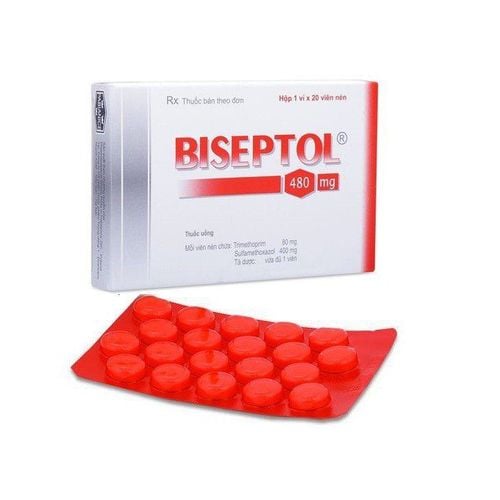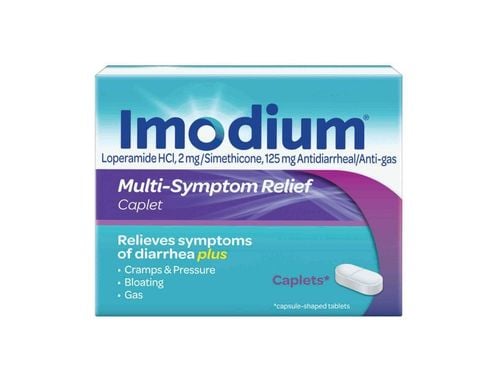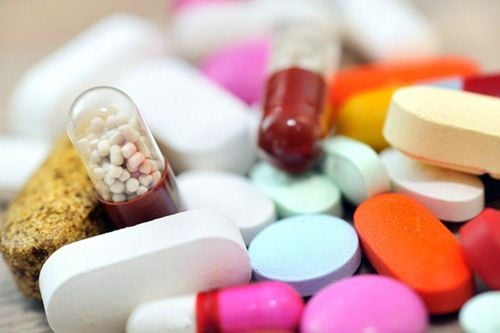This is an automatically translated article.
Dysentery is a common disease caused by shigella, E. coli, salmonella bacteria that infected people through direct contact with bacteria present in feces, dirty food or contaminated water. So what are the signs of dysentery?
1. What is dysentery?
Dysentery is an intestinal disease caused by Salmonella and shigella bacteria that can be transmitted by direct contact with bacteria in feces, by contaminated food, contaminated water, or by swimming in contaminated water. Dysentery is relatively common and can affect people of all ages, especially children aged 2-4 years.
Summer is the time when dysentery develops more than winter because this is a time of climate change, together with lifestyle, eating activities that make bacteria easier to enter the body. When a patient is infected, during the carrier phase, there are almost no symptoms, some people may have only mild diarrhea, but more severe can fulminant dysentery, even liver abscess leading to serious complications.
2. Why do people with dysentery have blood in their stools? Dysentery is a disease characterized by an infection in the intestines that causes blood and mucus in the bowel movements. The main cause of bloody diarrhea in dysentery is the bacterial process of protein destruction and tissue necrosis, causing ulcers in the digestive tract from which bleeding and finally blood in the stool. Although the symptoms of dysentery can range from mild to severe, some signs of dysentery include:
Abdominal pain, cramping; Diarrhea with blood; Anorexia; High fever from 38 degrees; Severe abdominal pain even with light touch; Flatulence, bloating; Weight loss; Headache, tiring. Symptoms can last 4-8 days, more severe can last 6-8 weeks. There are 2 types of dysentery, including amoebic dysentery and bacillary dysentery with different characteristics:
Amoebic dysentery is usually caused by eating dirty food or drinking water, severe symptoms such as severe pain in the abdomen, nausea, vomiting, stools blood with mucus and fatigue. Bacillary dysentery: Can be very dangerous once infected. The first signs are usually diarrhea, blood in the toilet, high fever, and vomiting.
3. How is dysentery treated?
The main goals of treatment for dysentery are to replenish fluid lost from diarrhea and treat bacterial infections. Some treatment methods for dysentery include:
Use of antibiotics: For infants or the elderly, people with poor resistance, antibiotic treatment is necessary. During treatment, it is necessary to follow the doctor's orders, do not arbitrarily change the dose to avoid encountering side effects or drug resistance. Replenish fluid loss due to diarrhea. As for severe cases that cannot drink water on their own, to rehydrate the body, it is necessary to take them to medical facilities to receive water and salts through a vein. Compared to drinking on its own, the intravenous infusion will provide the water and nutrients needed by the body faster. 4. How to prevent dysentery? To prevent dysentery, you can take some measures as follows:
Regularly wash your hands with antibacterial soap to avoid bacteria, especially before eating and after going to the toilet. People with infectious diseases should not hold food and drinks for others. The bacteria that cause the disease can still be present in the stool of a person with diarrhea for 1-2 weeks after the symptoms have ended. If your baby is in the diaper phase and has an infection, clean the area around with disinfectant and put the diaper in a closed trash can. After using the toilet, remember to wash your hands thoroughly with warm water and soap to kill bacteria. Drink oresol to hydrate the body and avoid dehydration. Eat a lot of fresh, clean fruits or drink fruit juices Avoid eating greasy foods that are not good for digestion, eat more vegetables and light dishes. Avoid spicy and oily foods, dairy products. Do not drink carbonated drinks, alcohol and foods that cause bloating such as okra, cauliflower, broccoli, nuts, etc. Dysentery, if properly treated, is not life-threatening, but it is must not be subjective with severe dehydration and other dangerous complications of the disease, especially for young children.
Please dial HOTLINE for more information or register for an appointment HERE. Download MyVinmec app to make appointments faster and to manage your bookings easily.













